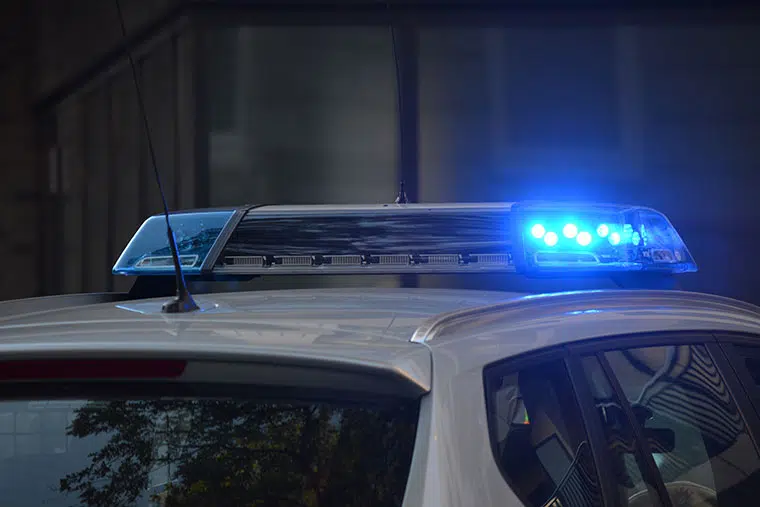Driving under the influence, driving while drunk, and impaired driving all mean the same thing to most people in Ontario. However, Driving Under the Influence (DUI or DWI) and Impaired Driving are different laws. A driver can be charged with one or both of these. It gets even more complicated with other charges. These include refusing to comply with a demand, drug-impaired driving, and impaired driving caused by drugs or alcohol. There are also charges for impaired driving that hurts someone and impaired driving that leads to death.
Just knowing these different offenses in the Criminal Code is already difficult. Trying to find your way through the legal system without help from a good criminal defense lawyer could make your situation much worse. Don’t say anything, make any choices, or agree to anything with the police or the Crown until you talk to a lawyer first.
Keep reading to understand the basic DUI laws in Ontario. You’ll learn when these charges happen and what the consequences are for each.
Driving Under the Influence/Over 80
A driver is thought to be driving under the influence if their blood-alcohol level (BAC) is 80 mg or higher in 100 ml of blood. Here are some important points about this DUI law in Ontario:
- You can still face charges and be found guilty of DUI/Over 80, even if you’re not driving. This can happen if you are said to have “care and control” of the vehicle. For example, sitting in the driver’s seat with a BAC over 80 could qualify.
- DUI laws also apply to other types of vehicles such as:
- Boats, aircraft, and train equipment
- Snowmobiles, ATVs, tractors, golf carts, ebikes, and motor scooters
- A person can be charged and found guilty under Ontario DUI laws if a blood or breath test shows a BAC of 80 mg or more. This is true, even if they do not act or seem drunk.
If you get arrested and charged with DUI, you might feel like you should just admit to it or plead guilty. You may think there is no way to escape the blood or breath test results they have against you.
Even if you feel you have no defense or chance to win the case, the Crown still must prove the charges against you clearly. A skilled DUI lawyer in Toronto can spot mistakes and weaknesses in the evidence. A person without legal training will not be able to see these issues.
You might have defenses because of rights violations. Many people in Ontario do not know about these rights regarding DUI laws. This is why it’s very important to stay quiet and not make any choices about your case without talking to a lawyer first.
Credit: Brett Sayles Via: Pexels
Impaired Driving
Even if you have less than the legal limit of alcohol in your body, you can still be charged with Impaired Driving. This can happen if you are driving or are found to have care and control of a vehicle, boat, or plane. If an officer thinks your ability to drive is affected by drugs, alcohol, or both, they may charge you.
Common behaviors that can make an officer think you are impaired include:
- Unsteady driving, moving between lanes
- Slow reactions to traffic lights and signs
- Unsafe speeding and sudden stops
- Large turns
- Slurred speech
- Red eyes
- A smell of drink on the breath
- Unbalanced while standing
- Poor coordination and motor skills
In 2018, the federal government added rules for drug-impaired driving to the DUI laws. You could face charges for Impaired Driving by Drugs if:
- If your blood has more than 2 nanograms of THC per ml, that is important. Having over 5 ng of THC per ml is taken more seriously.
- If you have 50 mg of alcohol in 100 ml of blood and 2.5 ng or more of cannabis in your system.
- It is serious if there is any amount of cocaine, LSD, or other illegal drugs in your blood.
Failure or choice not to provide a breath or blood sample.
You can also be charged with not obeying a request. This could be for refusing a breath test, not giving a body fluid sample (like saliva), or saying no to a fitness test.
If the police stop you, you need to give them your driver’s license, car ownership, and insurance. You do not have to answer the officer’s questions or say anything. Still, remember to be polite if you choose not to answer.
If the officer thinks you are not in a good state, they can ask you to give a breath or a fluid sample, or take a test. You must follow their request. However, if you are hurt, you may have a good reason not to provide a sample.
You cannot talk to a lawyer if you need to do a roadside test. But, you can talk to a lawyer if you are arrested and taken to the police station or hospital for more tests.
Penalties for Violating Ontario DUI Laws
Here are some penalties from the Criminal Code for being found guilty of DUI laws in Ontario:
- First Offence – Over 80, Impaired by Drugs and/or Alcohol, Refusal to Comply – A minimum fine of $1,000 (or $2,000 if you do not comply).
- A maximum of 10 years in prison.
- Second Offence: – A minimum of 30 days in prison.
- A maximum of 10 years in prison.
- Third Offence: – A minimum of 120 days in prison.
- A maximum of 10 years in prison.
Visit this Government of Canada website for more information. You may face penalties under Ontario’s Highway Traffic Act right away if you fail a sobriety test. These penalties can include immediate licence suspensions and towing of your vehicle. Find out more here.
How Do You Win a DUI Case?
The most important step in getting the best result for your case is to see a lawyer as soon as you can. Your chances of winning a DUI case in Ontario improve the earlier you have a lawyer. The sooner your lawyer starts working on your case, the more time they have to find and act on any mistakes from the investigation or prosecution. These errors could make a strong case against you fall apart.


